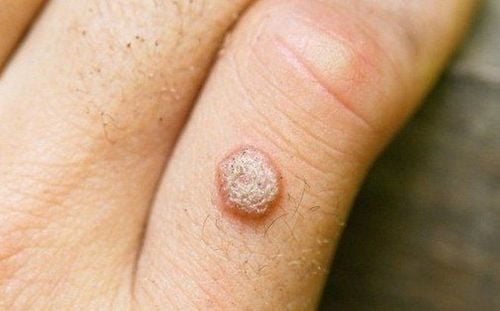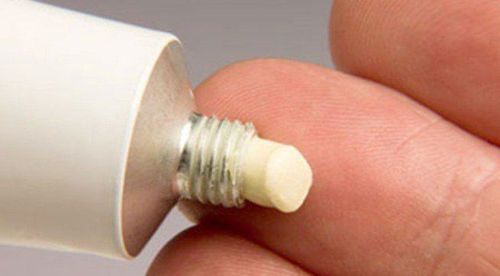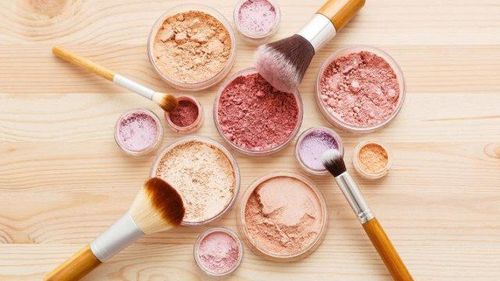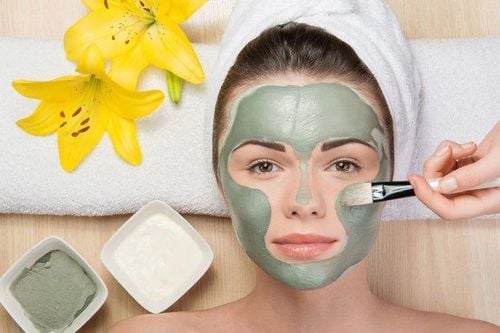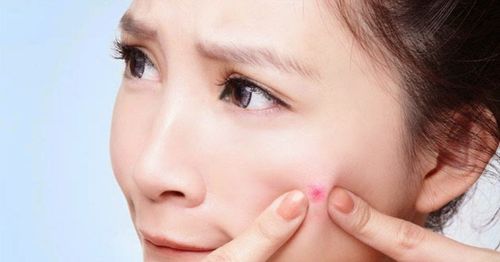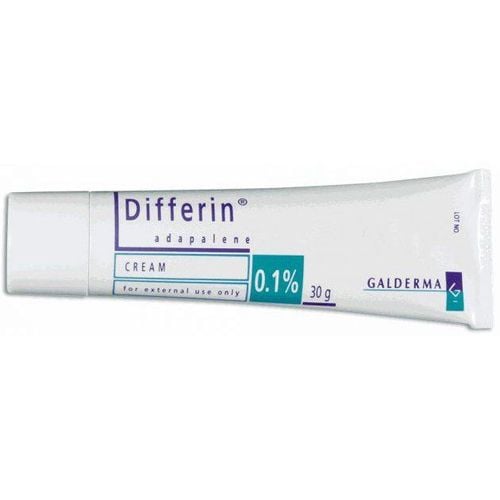This is an automatically translated article.
Chin acne is often caused by hormone fluctuations that can occur during puberty or the menstrual cycle. However, acne on the chin can occur at any age and anyone can get it. Acne on the chin can still be treated at home with a mild degree. For more severe cases, a dermatologist should be consulted. However, in both cases, nodules on the chin should not be squeezed.
1. What is chin acne? Causes of acne on the chin
Chin acne is very common, especially among women and teenagers, and is similar in nature to acne on other parts of the face, neck, chest and back.
Oil traps dead skin or other debris and bacteria in one or more skin pores. This causes acne. However, acne on the chin is also the result of fluctuations in hormones. This is especially true for women and adolescents, as both tend to experience severe hormone fluctuations. Androgen hormone is the hormone responsible for stimulating the production of sebum. Sebum is an oily substance that clogs pores and creates acne. Because hormones can change throughout adulthood, chin acne can appear, disappear, and recur at any time.
When chin cysts appear, this is only a mild nuisance, usually not dangerous. However, adult women with facial acne may develop mild to moderate anxiety disorder. Therefore, although acne on the chin does not harm physical health, it causes poor concentration on daily activities, both work and study.
In addition, the cause of acne on the chin can also be due to ingrown hairs into the skin instead of out, especially occurs due to shaving in men, has acne-like symptoms and may be swollen or red and painful . However, anyone can experience ingrown hairs on the chin as well as other areas of the skin, including the face, and cause acne.
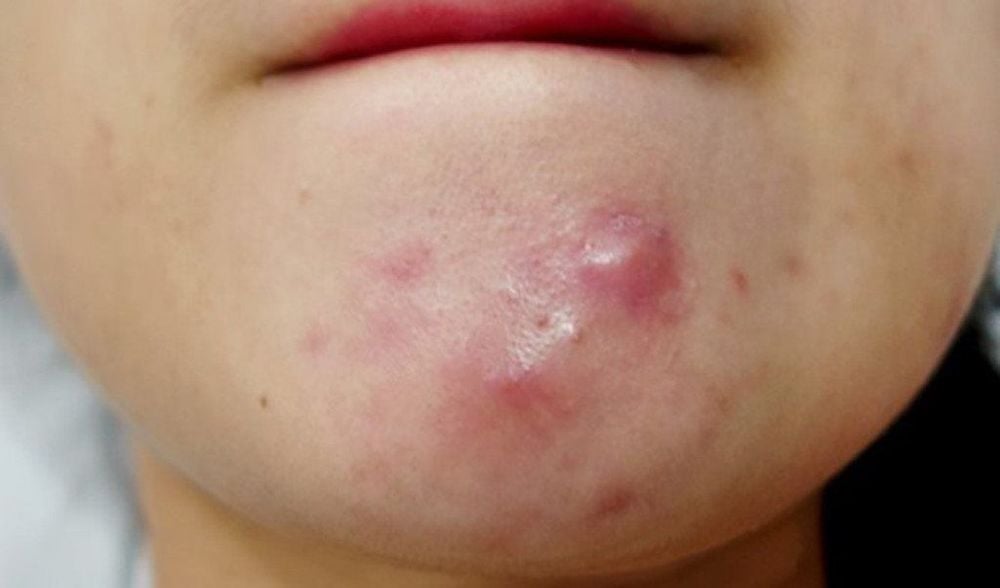
Mụn bọc ở cằm chỉ là một sự phiền toái nhẹ, thường không nguy hiểm
2. Should acne on the chin be squeezed?
The answer to the question "Should acne on the chin be squeezed?" is not.
If the condition of acne on the chin is mild, people can start treating it at home, taking care of it like other common acne cases and always remember not to pop it. The reason is because this action has the potential to cause a real skin infection, which may appear other acne lesions and when healed will leave deep scars, pitted scars on the skin, causing cosmetic loss.
The best thing to take care of acne on the chin during this time is to use a cleanser, acne cream that contains salicylic acid or benzoyl peroxide. Both of these ingredients can help dry chin cysts within a few days, although it can sometimes take up to a few weeks.
Accordingly, to treat a local outbreak of acne on the chin, detailed instructions should be followed:
Wash the affected area with a mild cleanser or cleanser containing salicylic acid. Apply an ice pack to the area for about 5 minutes to help reduce redness. Apply an acne cream that contains benzoyl peroxide. Do not pop pimples or try to break them. If chin acne does not go away or becomes more severe, consult a dermatologist. At this point, the doctor will need to prescribe additional treatments, including:
Oral antibiotics to kill bacteria trapped in the skin. Isotretinoin is a medication that doctors prescribe when other treatments have not worked. Prescription-strength creams, ointments, or gels. Laser therapy. Minor surgery to remove pus in acne. Chemical peels. Birth control pills, to help regulate hormones that increase sebum production.
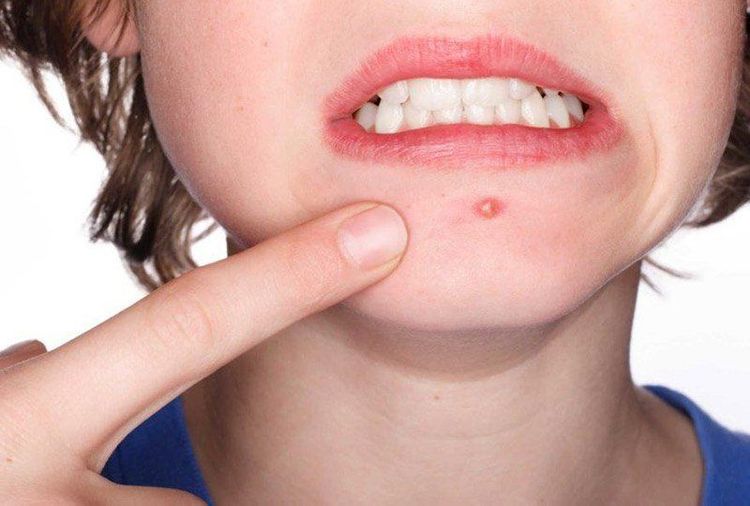
Nếu mụn bọc ở cằm ở tình trạng nhẹ có thể điều trị tại nhà và không nên nặn chúng
3. How to prevent acne on the chin?
Everyone can help prevent chin pimples or other pimples from developing by washing their face several times a day with the following tips:
Wash the chin and all areas of the face with mild soap twice or more per day. Do not go to bed without removing makeup. Exfoliate regularly. Do not consume too many foods high in fat and sugar. Limit stress, avoid staying up late or other hormone triggers. Avoid touching your face too much with your hands, fingers, and fingernails. Use an oil-free sunscreen regularly. Keep bed sheets and pillows clean and launder them regularly. Avoid skin care products or makeup that contain oils that can clog pores. Keep your hair away from the chin area and clean it regularly. To prevent chin acne caused by ingrown hairs, shavers should use moisturizing shaving cream, use a sharp razor, and minimize the number of shaves to avoid further irritation to the skin. In conclusion, chin acne is a common phenomenon that can occur throughout adulthood, especially in women, due to hormonal changes. Acne appears to make the skin irritated, uncomfortable and wondering "should the acne on the chin be squeezed". Accordingly, always keep in mind that the answer is NO. Practice good skin hygiene, take proper care of your skin with the right products, and quickly control the growth of chin acne and prevent them from returning.
Please follow the website: Vinmec.com regularly to update many other useful information.
Please dial HOTLINE for more information or register for an appointment HERE. Download MyVinmec app to make appointments faster and to manage your bookings easily.
Reference sources: medicalnewstoday.com, teenvogue.com, womenshealthmag.com, bookingcare.vn, drthaiha.vn, trungtamytedpbackan.com




